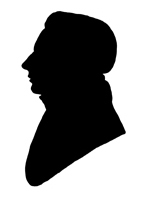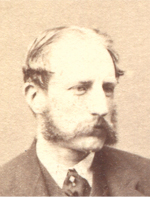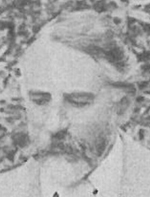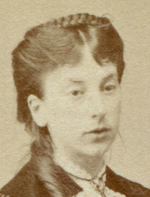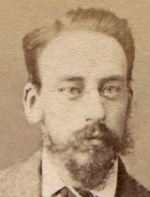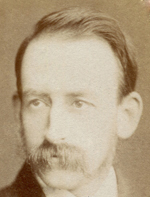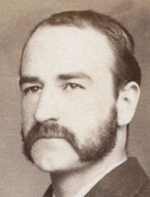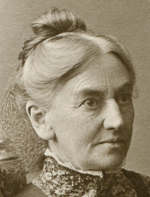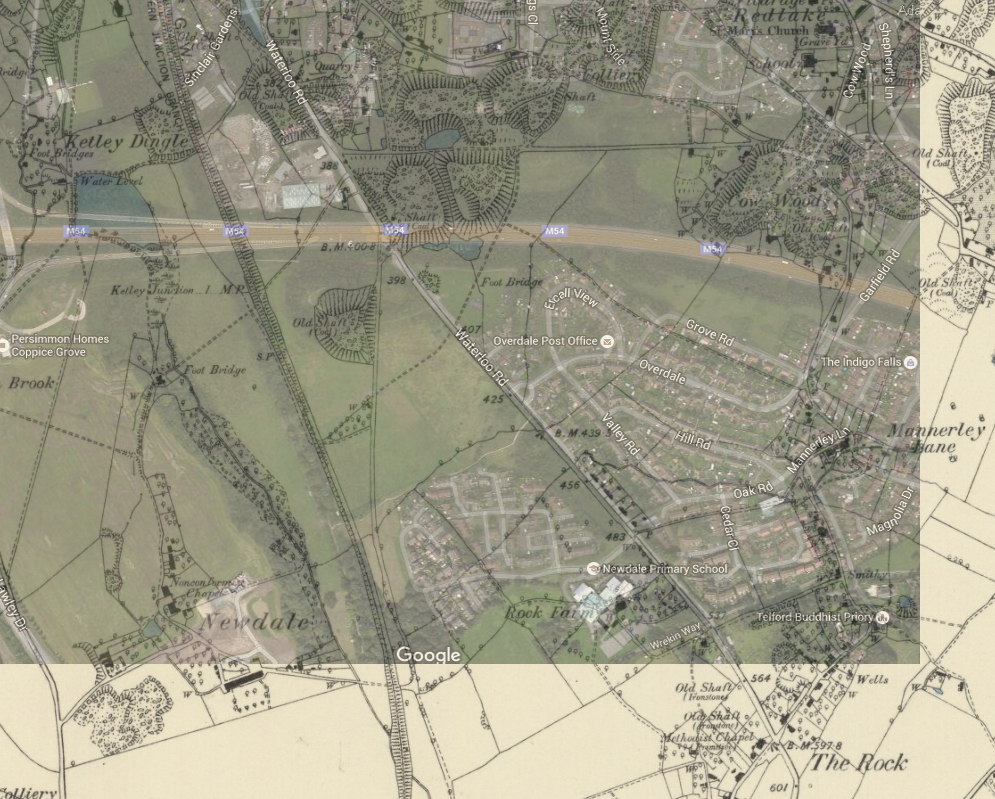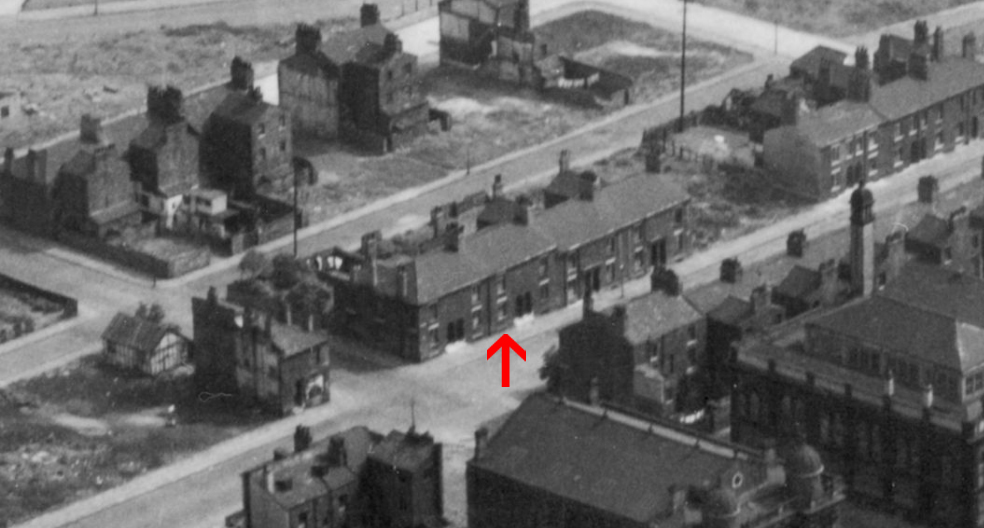Full name: Robert Enock.
Date of birth: Tuesday, 31st December, 1811.
Birthplace: Shrewsbury, Shropshire, England.
Date of death: Sunday, 29th July, 1855 (aged 40 years).
Place of death: 32, Market Place, Reading, Berkshire, England. Thomas Gregory present at death. Market Place was the shop/residence of Thomas and Jane Gregory (nee Doeg), Robert's sister and brother-in-law.
Buried: ?
Cause of death: Chronic Meningitis (3 months), softening of centre of brain (9 days), effusion of water into ventricles (fluid in heart) (3 days).
Signature:

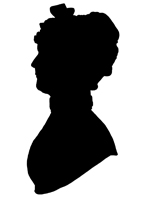
(née Robinson)
(1781-1853)
_Portrait.jpg)
Elizabeth Enock (née Doeg) (1810-1867). |
Date of marriage: Thursday, 15th September, 1836.
Place of marriage: Quaker Meeting House, Tottenham High Street, Tottenham, London, England.
1811-c1821 - Shrewsbury, Shropshire, England.
c1821-? - New Dale (just outside Telford), Shropshire, England.
The above map shows a present map layered on top of the 1882 Shropshire OS map. The New Dale village sits just below junction 6 of the M54.
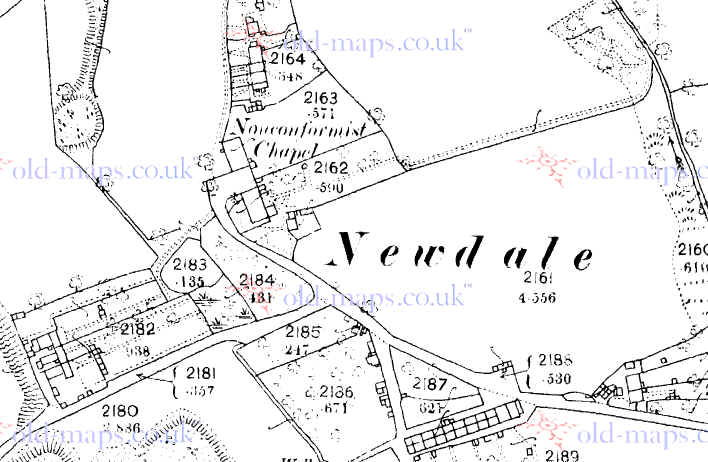
A closer look: Newdale seen on the 1882 Shropshire OS map.
The area appears to have remained unchanged right up until c1977. The area is now currently under development.
1835-1837 - Birmingham, England.
1837 - Lee Crescent, Edgbaston, Birmingham, England.
December 1838-February 1840 - Marlas, Pyle, Glamorganshire, Wales.
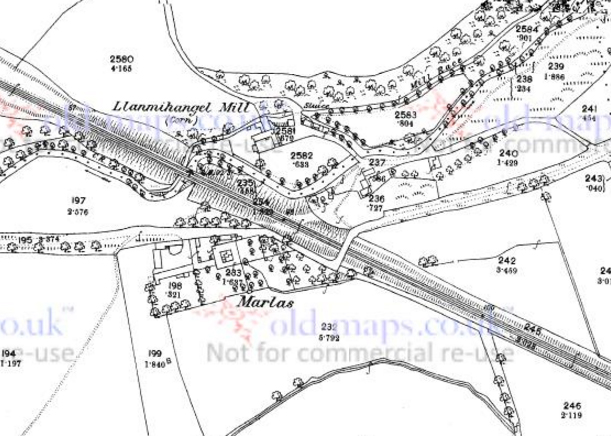
Marlas shown on the OS County Series: Glamorganshire 1876-1877 1:2,500. Taken from old-maps.co.uk
May 1841-June 1841 - Erdington Slade, Birmingham, England.
April-September 1845 - 59, Stocks Street, Cheetham, Manchester, England.
House demolished in between 1958-1962. House stood where the Rothwell & Thomas is now located.
1847 - 17, Bath Row, Lee Bank, Birmingham, England.
Number 17 was located near to the Birmingham Canal.
1850-1853 - Stratford Road, Sparkbrook, Birmingham, England.
According to the 1851 census, the Enocks were seven entries away from the Angel Inn Hotel. By tying this information in with the 1889 OS town plan of Birmingham, the Enocks would have lived next-door to Ladypool School. The house was demolished to make way for St. Agatha's Church around 1898.
1853 - Balsall Heath Road, Edgbaston, Birmingham, England.
1855 - 399, Bristol Road "Sussex Place", Edgbaston, Birmingham, England.
Rent £40 in the 1860s. Demolished between 1956-1966.
Saturday, 10th August, 1822 - Saturday, 24th December, 1825 - Ackworth School, Pontefract Road, Ackworth, Pontefract, England.
Admit number: 4544.
Agent: Bernard Dickinson.
Admission: 10 guineas per annum [£10.50 in today's money, measuringworth's calculator would say the relative value is £921.30.]
Life at Ackworth.
Pupils remained at Ackworth for the full duration of their education.
Scholars studied during the day, and undertook some manual work out-of-hours.
The curriculum between 1822-1825 consisted of:
Manual work included:
- Waiting the table
- Cleaning shoes and knives
- Helping in the bakery and the dairy
- Working in the garden or on the farm
An essential feature to education at Ackworth was meeting for worship. A small part of every day was devoted to silent and serious thoughtfulness.
Staff at Ackworth during Robert's schooling:
Superintendent: Robert Whitaker
Masters: John Donbavand (Grammar Master), Henry Brady (Reading,
Writing, Grammar & Latin Master), Thomas Brown, William Doeg (Robert's
future brother-in-law),
Housekeeper: Hannah Whitaker
Boys' Matron: Elizabeth Preston
Nurse: Mary Dumbledon
Principal Tailor: Leonard West
Principal Shoemaker: Samuel Whalley, John Wright
Baker: Philip K. Jackson, Banjamin Walker
Husbandman (Farmer): Robert Graham
Principal Gardener: James Jones
Additional information on Ackworth School can be found here.
c1825-c1830 - Linen draper (apprenticeship).
Robert left Ackworth with Henry Brady to Sheffield to Sarah Smith's care. In an 1843 survey of Ackworth old boys, it is stated that Robert apprenticed in linen draping and then went on to become a hatter.
May 1835 - September 1837 - The Hat, Glove, Umbrella and Parasol - 29 Bull Street, Birmingham.
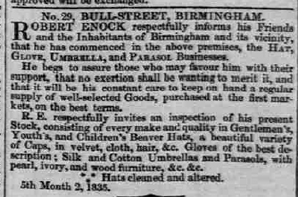
Birmingham Gazette - 4th May, 1835.
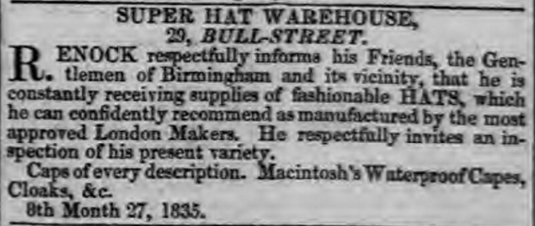
Aris's Birmingham Gazette - 31st August, 1835.
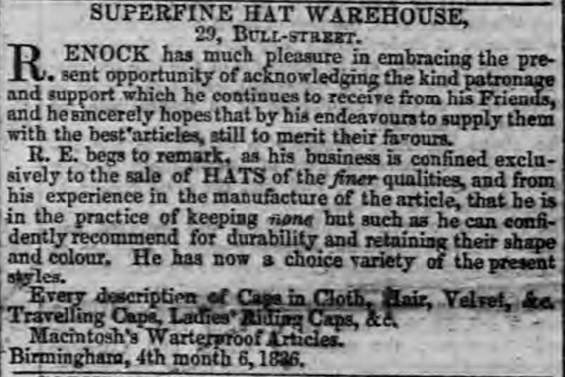
Aris's Birmingham Gazette - 18th April, 1836.
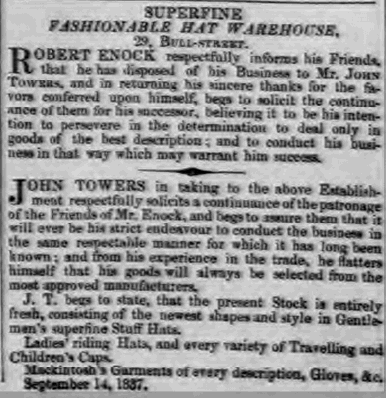
Birmingham Gazette, Monday, September 18th, 1837.
In the 1843 Ackworth old boys survey, it details that Robert had failed in business.
c1837-1855 - Commercial Traveller for the tea trade.
"What did travellers do?. Until the 1870s, travellers were responsible for visiting retailers to take orders from existing customers or called upon new customers to introduce products.. Collecting debts was an important task, especially for the small firm struggling with liquidity. The incentive to travellers to push goods was a guaranteed salary plus travel expenses and allowances for lodgings or hotel accommodation, plus commission. Salaries were based on historic levels of sales, or in new areas on partners' perceptions of what constituted a reasonable level of sales (and level of commission attainable) in the light of population size and the balance in the market between middle and working classes and the poor." - The rise and changing role of commercial travellers in Britain between 1870 and 1914.
1850-1851 - Enock & Hardy, 211 & 212, Stratford Road, Spark Brook, Birmingham, England.
Merchants and Drysalters - manufacturers of baking, washing and bleaching powder.
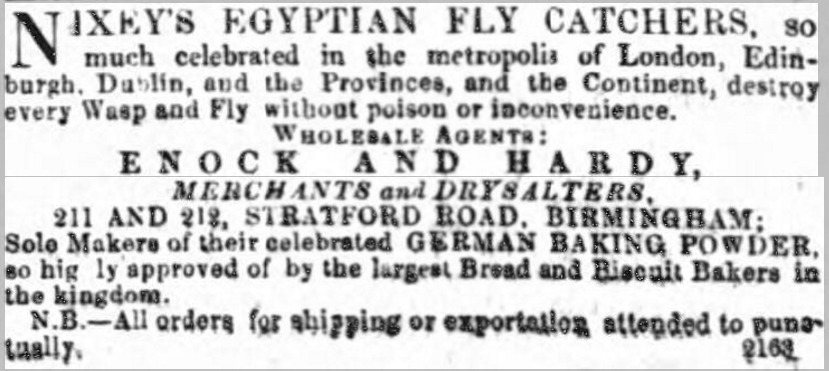
Birmingham Journal - 29th June, 1850.
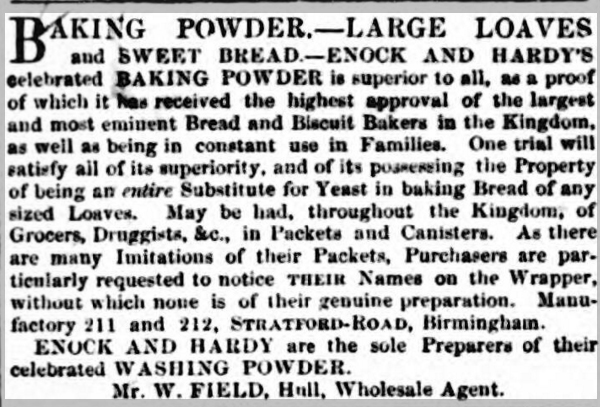
Hull Advertiser and Exchange Gazette - 19th July, 1850.
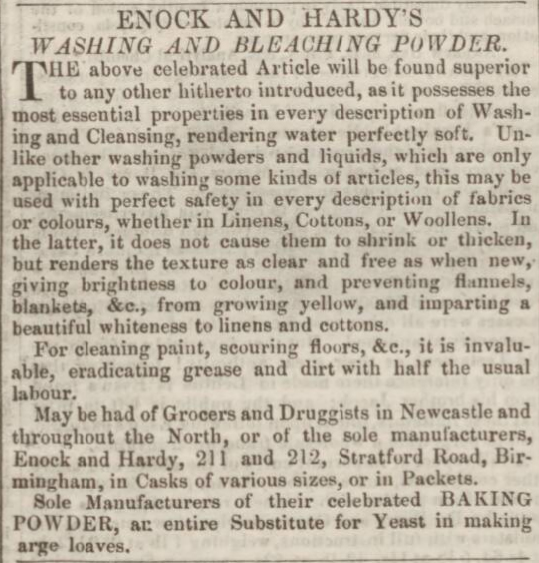
Newcastle Guardian and Tyne Mercury - 10th August, 1850.
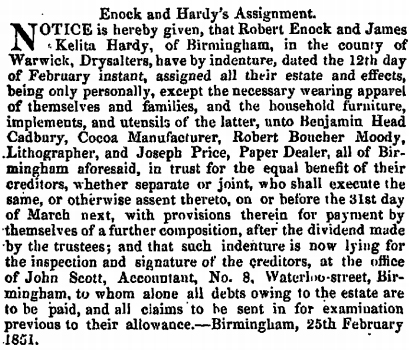
The London Gazette - 28th February, 1851.
Linen Draper.
Artisans (linen drapers fall under this category) in the provincial areas of Britain averaged earnings of 22 shillings a week [£57. 14s. per annum] in 1833.
Commercial Traveller
A number of documents published between the mid to late 1800s suggest that the income of a Commercial Traveller was around the £100 mark, per annum (+ commission).
The 1851 census gives an insight into Robert's financial position at this time:
Rent: £35 (typical charge for a property on the Stratford Road containing 5 bedrooms, two parlours, kitchen, coach house and stable). (Costs taken from 3 articles published in Birmingham newspapers between 1850-1859).
General House Servant: £11 (average taken from 59 articles published in UK newspapers between 1850-1859).
Nurse Maid: £8 (average taken from 14 articles published in UK newspapers between 1850-1859).
Education: £24 - Robinson, and
Fred were boarding at Ackworth School. The minimum charge for boarding in 1856 was
£12 per annum.
Total (not including food and fuel): £78.
In 1843, the various monthly meetings were asked to conduct a survey of the fortunes of Ackworth old boys who had been at the school between 1799 and 1843.
Ackworth number: 4544
Name: Robert Enock
From what place sent: Newdale
Time of leaving Ackworth: 1825
Is he now living; if deceased,
in what year or about? Yes
To what trade was the boy
apprenticed: Linen Draper
What trade did the man follow
when a man: Hatter
Has he married: Yes
Has he entered into business on
his own account, or remained an assistant to others: On his own account
Has he failed in business or
become dependent on his friends: Yes
Is he now in membership with
the Society of Friends: No
If disowned, state whether for
immoral conduct, failure in business or marriage contrary to rule: For failure
Has he emigrated and if so, to
what country: No
Mary Robinson Enock - 1854
“I give and Bequeath direct limit and appoint all and singular my Messuages, lands, tenements, hereditaments and premises and other my real and personal Estate and effects whatsoever and wheresoever of which I am or shall be seized or possessed or in any manner entitled to at the time of my decease or over which I have or may have any power of appointment or other disposing power which power I do expressly declare it to be my intention hereby to execute unto my Sisters Caroline Wheeler, Sophia Kenway, Sarah Smith and my Sister-in-law Elizabeth Enock To hold to them the said Caroline Wheeler, Sophia Kenway, Sarah Smith and Elizabeth Enock and their heirs, executors, administrators and assigns forever according to the natures and qualities of the same respectively absolutely to and for their several use benefit and disposal as tenants in common and not as joint tenants.”
David Doeg - 1855
"I give and bequeath the remainder of my property to be equally divided amongst my children Rebecca Jackson, William Doeg, David Doeg, Robert Doeg, Elizabeth Enock, and Jane Doeg."
Page updated 30th March, 2021.
